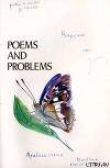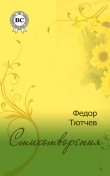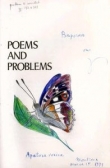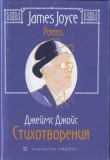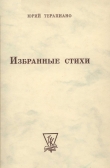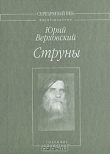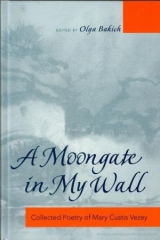
Текст книги "A moongate in my wall: собрание стихотворений"
Автор книги: Мария Визи
Жанр:
Поэзия
сообщить о нарушении
Текущая страница: 19 (всего у книги 19 страниц)
This poem speaks about the time of terror during reign of King Sedyo in the 15th century.
[Закрыть]
In the night a storm passed;
Ice caked the earth.
An angry wind
Broke the tall young pine saplings.
Flowers that had not yet opened
Will never be blooming now.
[1960s]
Powdered with falling snow,
the crow turns white;
the moon's translucent glow
pales the black night.
Only a loving heart that constant stays
will never change its color through the days.
[1960s]
In ancient Korean tales Mount Pon-ne-san is a Mountain of Happy Grasses, where the grass of eternal youth grows.
[Закрыть]
What will become of me
after I die?
Standing on the top of Mount Pon-ne-san
I want to be a tall, straight pine tree
So that my green crown
May reach the grey sky
Even in winter.
[1960s]
Variant in the manuscript: «Over the chilly autumn stream / Evening breezes play, / No matter how often I cast my line/ I can catch no fish today./ I have only filled my soory sloop / With all the moonbeams I could scoop.»
[Закрыть]
Over the autumn river
The cold night breezes play.
No matter how often I cast my line,
I can catch no fish today.
I have only loaded my sorry sloop
With all the moonlight I can scoop.
[1960s]
Variant in the manuscript: «I made three rooms of day / For myself and for my friends / I live in one, the moon in another, / and the free wind in the third./ But the hills stayed alone / Under open skies in autumn rains».
[Закрыть]
I built a three-room hut of clay
To dwell in, with my friends;
One for myself, one for the moon,
The third one for the winds.
Only the distant mountains must remain
Under the open sky and autumn rain.
[1960s]
I do not need a straw mat
I can sit on the fallen leaves.
About the lighting do not worry either —
The half moon soon will light the sky.
Why co m p lain about the modest fare!
Bring it – I am not a demanding guest.
[1960s]
Life, like a tortuous river, has led to divided streams:
clear blue sky and the peach's gentle blossom gleams,
reflected, as if in glass, in the limpid surface of one,
while tossing in storm and fury, the other hurtles on.
How can 1 seek then, carefree, the Inlet of Greatest Peace,
now that over my country the war winds never cease?
[1960s]
Kosang is a coastal region in Korea; Chu Xi (1120–1188) was a Chinese Confucian philosopher, and Mu Yi his native village.
[Закрыть]
No one knew until now that there were in the world
such corners as Kosang
where my hut stands on the seashore,
where my friends now like to visit,
while i read the works of Chu Hsi,
imagining my self in Mu Yi.
[1960s]
Ilgok was the First Bend in the river and the place name. Variant in the fourth line in the manuscript: «And the mountains have floated up on the horizon».
[Закрыть]
The sun comes up over the Rock of Dawn —
how beautiful is the Ilgok First Bend!
The mist has flown from the dewy meadows,
and the mountains have appeared on the horizon.
Having put a jug of wine in front of myself,
I sit under the pines and await my friends.
[1960s]
Igok was the Second Bend in the river.
[Закрыть]
Everything has begun to bloom
on the hill of Awakening. —
How beautiful is the Igok bend!
The petals of spring flow'ers float down from the knoll
on the waves that retreat into the sea…
People will know' about this now – from me.
[1960s]
Samgok was the Third Bend in the river.
[Закрыть]
The woods are screened by the Green Curtain. —
How beautiful is the Samgok bend!
Birds sing fantastic songs!
A duet down below, a trio – from above,
And the wind, with a pine-tree brush,
paints the picture of summer in the blue sky.
[1960s]
Sagok was the Fourth Bend in the river. Variant in the fourth line in the manuscript: «Reflects the mountain tops and majestic woods».
[Закрыть]
The sun sets beyond the Pinetree Fan. —
How beautiful is the Sagok bend!
The mirror smoothness of the water
Reflects the mountain tops and stately woods,
And a hundred hues of the sunset… I look
And a feeling of wonder fills me to the brim.
[1960s]
Ogok was the Fifth Bend in the river. Variant in the fifth line in the manuscript: «The Forest Screen breathes of resin».
[Закрыть]
The Forest Screen breathes of pine. —
How beautiful is the Ogok bend!
A little house stands here, clean and orderly,
As if it had bathed in spring water.
I know: alone in it, one can
sing the enchantment of the moonlight nigh.
[1960s]
Variant in the fifth line in the manuscript: «Dusk has settled upon the darkened water».
[Закрыть]
The raindrops are falling, falling on the smooth lake surface,
the willows, the weeping willows are wrapped in silent mist.
Where shall I look for you, my young fisherman?..
A lonely skiff presses its stern to the shore.
Dusk has settled upon the lusterless water.
A white gull darts aimlessly back and forth…
[1960s]
A space is left in the manuscript for the translation of the Russian word «ogarok» in the fifth line: «Но огарок свечи no утра додымится».
[Закрыть]
Wait, i am still holding your hands.
Don't push mo away, don't leave!
I see the night descending, the night of parting,
upon the flowers and trees of the garden.
But the (stub) of the candle will flicker on till morning,
and all will be clear by sunrise!
[1960s]
Variant in the manuscript: «Exiled by enemies to far Gangho, / In loneliness five loyal friends I found: / Water, Bamboo, a Cliff, a Pine, the Moon / That rises over yonder distant mound, / No calumny will sway them to betrayal, / In lofty friendship they will never fail».
[Закрыть]
Exiled by enemies to bleak Kangho,
In loneliness, five faithful friends I found:
Water, Bamboo, a Cliff, a Pine, the Moon
that rises over yonder Eastern Mcund.
No calumny can sway them toward betrayal:
In lofty friendship they will never fail.
[1960s]
I love the blue sky,
but in the sky dark clouds are born.
I love the impetuous wind,
but the wind is changeable…
Only you, Water, always
carry away my sorrows.
[1960s]
How beautiful were the flowers!
But now they have lost their petals.
The lush, bright-colored grasses
Have also dried and withered.
Only you, in your modest grey garment,
Granite cliff, have remained the same!
[1960s]
The warm days are over,
the trees have lost their leaves,
but angry winter storms
fail to scare you, Pine —
deep into the earth
your stubborn roots are grown.
[1960s]
Shining upon ten thousand things
you pass over the world. Moon,
and your bright gaze penetrates
into the depths of a darkened heart.
Thus silently into my eyes
gazes my closest friend.
[1960s]
The word «chihbi» means a hut
[Закрыть]
In the mountains I built my chihbi
Of clay and of willow branches,
And the valley people are mocking
And laughing at my idea.
They do not know I have found
Freedom from care in the chihbi.
[1960s]
Alone on a moonlight night
I gaze at a distant mountain.
The mountain is more perfect than my love
from whom I have parted:
The mountain is silent,
and no one will make us quarrel.
[1960s]
The creator may think
that I've no desire to work
for the good of myself and of others…
But I'm doing something important:
having left the malicious, the knaves,
I'm standing guard over nature.
[1960s]
Close the door tighter,
and blow out the candle…
I'm very tired, my friend,
I'm going to fall fast asleep.
But should a welcome guest
arrive, – awaken me.
[1960s]
Leaves, falling, wilt and dry;
its petals drops the flower,
and sap-filled grasses die
on scheduled hour.
Alone, the image of my land stays bright
through autumn days as on a summer night.
[1960s]
Close your book and open the window wide,
look: the ships are sailing away to sea.
The white gulls are following after them.
White seagulls! If we could also sail
far away to some peaceful harbor,
where there is no vain glory,
where friends alone await me.
[1960s]
Snow has blanketed our village.
It has blocked every road and trail.
My gate is snowbound. No friend
will knock on it. By the window
I'll spend this night with my only
friend – the moon.
[1960s]
I've left all thought of riches,
I've left all thought of glory.
I've left all thought of happiness, —
I've left all thought of myself…
So after I die
would anyone think of me?!
[1960s]
A space is left in the third line in the manuscript for the translation of the Russian word «целомудренный».
[Закрыть]
I am the lord of the streams and the green hills
scattered over the width of the Earth,
of pure and (untouched) nature.
No one can compete with me,
because, unlike the rich,
I keep my possessions in my soul.
[1960s]
The hills are green once again,
and snowdrifts on all the roads
have been thawed by the east wind,
yet dark mounds still remain
in the corners of my yard…
Isn't it time for them
also to melt away?!
[1960s]
I arose at dawn and went to feed the cattle.
Three or four stars were burning above the plain.
in the blue-white sky, the edges
of the clouds were turning to gold.
And I thought: this brief moment holds
all of a peasant's joy, all of a peasant's peace!
[1960s]
At the edge of the road
the feet of many travelers
have trampled into the mud
a piece of jade.
A long, long time life trampled it there…
But the jade
never turned into mud!
[1960s]
You can turn your nose up to look
haughtily at the sky;
you can stamp your foot in anger
at the indestructible Earth.
But the world is enormous and beautiful —
keep your respect for it!
[1960s]
My time flows like water.
But before all my hair turns white,
before I find eternal peace,
before my life is over,
one thing I want: to serve
my country and my neighbors.
[1960s]
They say, there's no joy in fame, —
they say, – so do not seek it;
nothing is sadder than losing your wealth, —
they say, – so take no pride in wealth.
So they say… But what is that to me?
– All I possess is a body and soul.
[1960s]
This is a dream I have:
I want to become a pair of wings
to fly high up in the sky
to sweep away the dark clouds
that have gathered over the Earth
between the people and the sun.
[1960s]
The hill is green in its own way,
The water is blue in its own way.
For each his own law.
Among the green hills and blue rivers
Man follows his own trail
Onward and onward – tow'ards death.
[1960s]
The outer gate is tightly shut,
the courtyard gate is bolted,
the padlock is on the door.
Then how did you manage to enter
in the sleepless hours of the night,
sadness, – torturing me?
[1960s]
Who will explain what love is like?
How is it measured from end to end?
Is it round, like the moon?
Or does it have four corners?
I cannot discern its shape!
The beginning and the end of love are hidden in the fog.
[1960s]
A shadow flitted past my window —
I ran to greet my love,
but it was only clouds
that, passing in the sky, brushed against the half-moon.
All was still. And no one saw
my embarrassment at that moment!
[1960s]
The birds hurry into their nests for the night.
Bright-faced, the moon appears in the heavenly plain.
You, there, monk, crossing the bridge alone over
the darkening stream,
How far to your monastery?
It seems that I hear the soft peal of a temple bell
in the twilight silence.
[1960s]
Библиография
English
«College Graduate Writes Book of Poems in Russian», Claremont Courier, Claremont, California, 20 March 1930.
Olga Bakich and Carol Ueland, «The Eastern Path of Exile: Russian Women's Writing in China», A History of Women's Writing in Russia, edited by Adele Marie Barker and Jehanne M. Gheith (Cambridge University Press, 2002), pp. 153–174.
Russian
Бакич. Ольга, «Мария Визи». From the Other Shore, No. 4,2004, p. 73–91. (Olga Bakich, «Mary Vezey»)
Бакич. Ольга. «Мария Визи. Творческий путь поэта России. Китая и США». Новый журнал. No. 227.2002. с. 219–243. (Olga Bakich, «Mary Vezey. Creative Path of the Poet of Russia, China, and the USA», Novyi zhurnal (New Review), New York, No. 227, 2002, p. 219–243.)
Бакич, Ольга, «Мария Визи – поэт России. Китая и США», Revue des Etudes Slaves, Paris, LXXIII/2-3, 2001, p. 373–386. (Olga Bakich, «Mary Vezey – a Poet of Russia, China, and the USA.»
«Библиография. М. Визи. Стихотворения т. II», Эмигрантская мысль. Шанхай, No. 3, 1936. («Bibliography. М. Vezey. Poems, v. II», Emigrantskaia mysl (Emigre Thought), Shanghai, No. 3, 1936.)
Голенищев-Кутузов. Илья, «Русская литература на Дальнем Востоке», Возрождение. Париж. 21 января 1932 г. (Il'ia Golenishchev-Kutuzov, «Russian Literature in the Far East», Vozrozhdenie (Resurrection), Paris, 21 January 1932.)
И.Ф., «Эмигрантские писатели на Д.В.», Русские записки. Шанхай-Париж, No. I. 1937, с. 322–330. (I.F., «Emigre Writers in the Far East», Russkie zapiski (Russian Notes), Shanghai-Paris, No. 1, 1937, pp. 322–330.)
Крузенштерн-Петерец, 10., «Чураевский питомник (О дальневосточных поэтах)», Возрождение, Paris, No. 204, 1968, с. 45–70. (lu.V. Kruzenshtern-Peterets, «Churaevka Nursery (On Far Eastern Poets)», Vozrozhdenie (Resurrection), Paris, No. 204, 1968, p. 45–70.)
Крузенштерн-Петерец, Ю… «Третья книга Марии Визи», Новое русское слово, Нью-Йорк, 23 сентября 1973 г. (Iu. Kruzenshtern-Peterets, «Third Book of Mary Vezey», Novoe russkoe slovo (New Russian Word), New York, 23 September 1973.)
Логинов. Василий. «Книжные новинки. М. Визи. Харбин, 1930», Рубеж, Харбин, недатированная вырезка, 1930. (V. Loginov, «New Books. М. Vizi. «Poems». Harbin. 1930», Rubezh (Border), Harbin, undated cutting, 1930.)
«М. Визи. Стихотворения. II». Новый путь. Шанхай. 24 мая 1936 г. («М. Vezey. Poems. II," Novyi put'( New Way), Shanghai, 24 May 1936.)
Несмелов. А. «Интересная книга. Стихотворения М. Визи» Рупор, Харбин, 15 августа 1929 г. (A. Nesmelov, «An Interesting Book. Poems. М. Vezey» Rupor (Mouthpiece), Harbin, 15 August 1929.)
H. P. (H. Резникова), «Книжные новинки. М. Визи. «Стихотворения. II», Рубеж No. 27. 27 июня 1936 г. (N.K. (N. Reznikova), «New Books. М. Vezey. «Роеms II», Rubezh (Border), Harbin, No. 27, 27 June 1936.)
Павлович. А., священник. «Книжная полка. М. Визи. Голубая трава. Третья книга стихов». Русская жизнь. Сан-Франциско, 10 августа 1973 г. (Priest A. Pavlovich «Bookcase. М. Vezey. Blue Grass. Third Book of Poems», Russkaia zhizn (Russian Life), San Francisco, 10 August 1973.)
Перелешин, Валерий, «М. Визи. «Голубая трава». Новый журнал, Нью-Йорк, No. 114. 1974 г., с. 248–249. (Vaerii Pereleshin, «М. Vizi. «Blue Grass», Novyi zhurnal (New Review), New York, No. 114, 1974, p. 248–249).
Петров. Виктор, «Памяти Муси Турковой (поэтессы Мэри Визи)», Русская жизнь. Сан Франциско, 9 ноября 1994 г. (Victor Petrov, «In Memory of Musia Turkova (Poet Mary Vezey)» Russkaiazhizn (Russian Life), San Francisco, 9 November 1994.)
Терапиано. Ю. «Новые книги». Русская мысль. Париж, 20 декабря 1973 г. (Iu. Terapiano, «New Books», Russkaia mysl' (Russian Thought), Paris, 20 December 1973).

